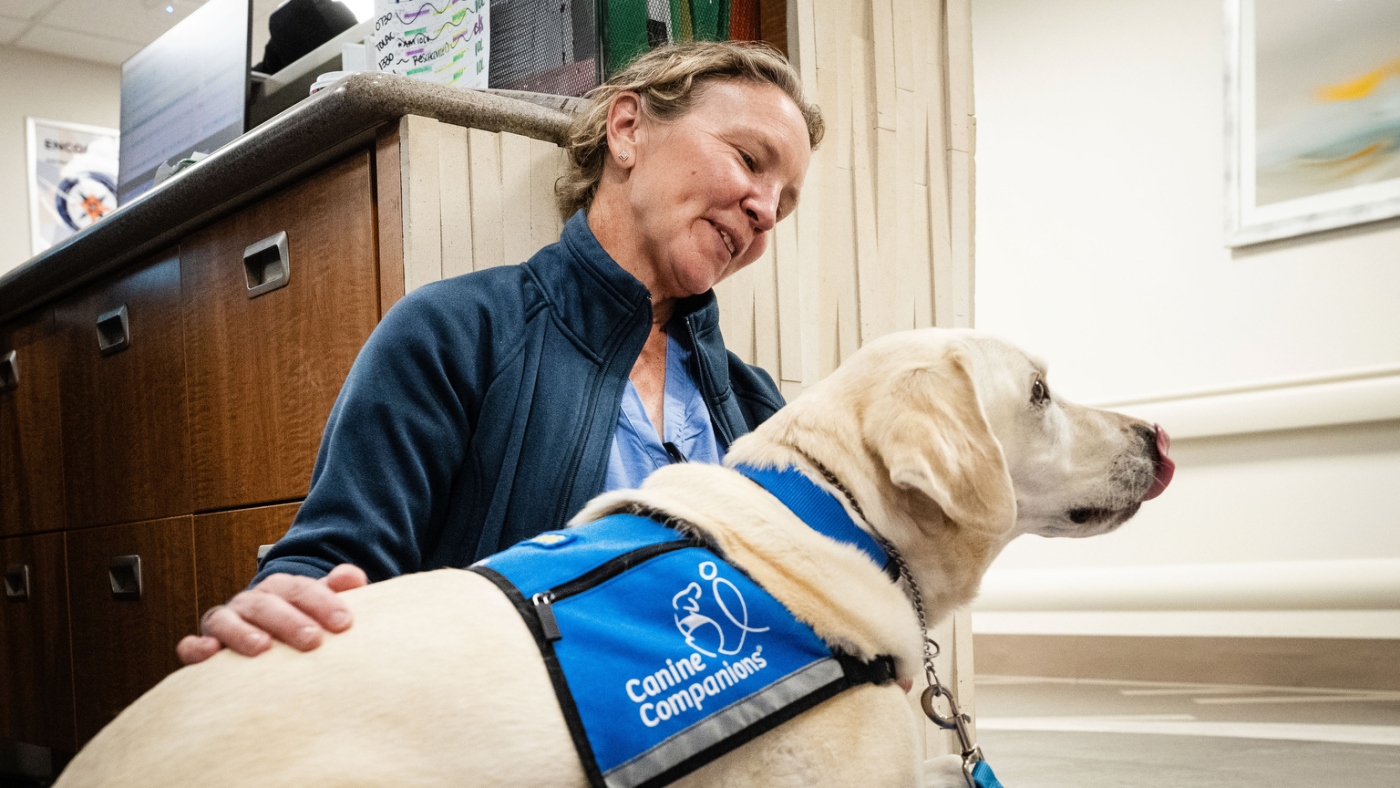Paws of Comfort: How Canine Companions Are Rescuing Exhausted Hospital Staff

In a compassionate approach to workplace wellness, hospitals are now introducing a furry solution to combat medical staff burnout: therapy dogs. These specially trained canines are becoming a regular presence, spending entire shifts alongside doctors and nurses to provide emotional support and stress relief.
The demanding world of healthcare can take a significant toll on medical professionals, with long hours, high-pressure situations, and emotional challenges contributing to widespread burnout. Enter these four-legged companions, who offer a unique form of comfort and respite. Trained to provide calm and companionship, these dogs create moments of joy and relaxation in otherwise intense hospital environments.
Throughout their shifts, these therapeutic canines move through hospital corridors, offering gentle interactions, comforting touches, and unconventional emotional support to exhausted healthcare workers. Their presence serves as a powerful antidote to the mental and emotional strain experienced by medical staff, helping to reduce stress and improve overall workplace morale.
By integrating these compassionate canines into hospital settings, healthcare institutions are pioneering an innovative approach to supporting their most valuable asset—their dedicated medical professionals.
